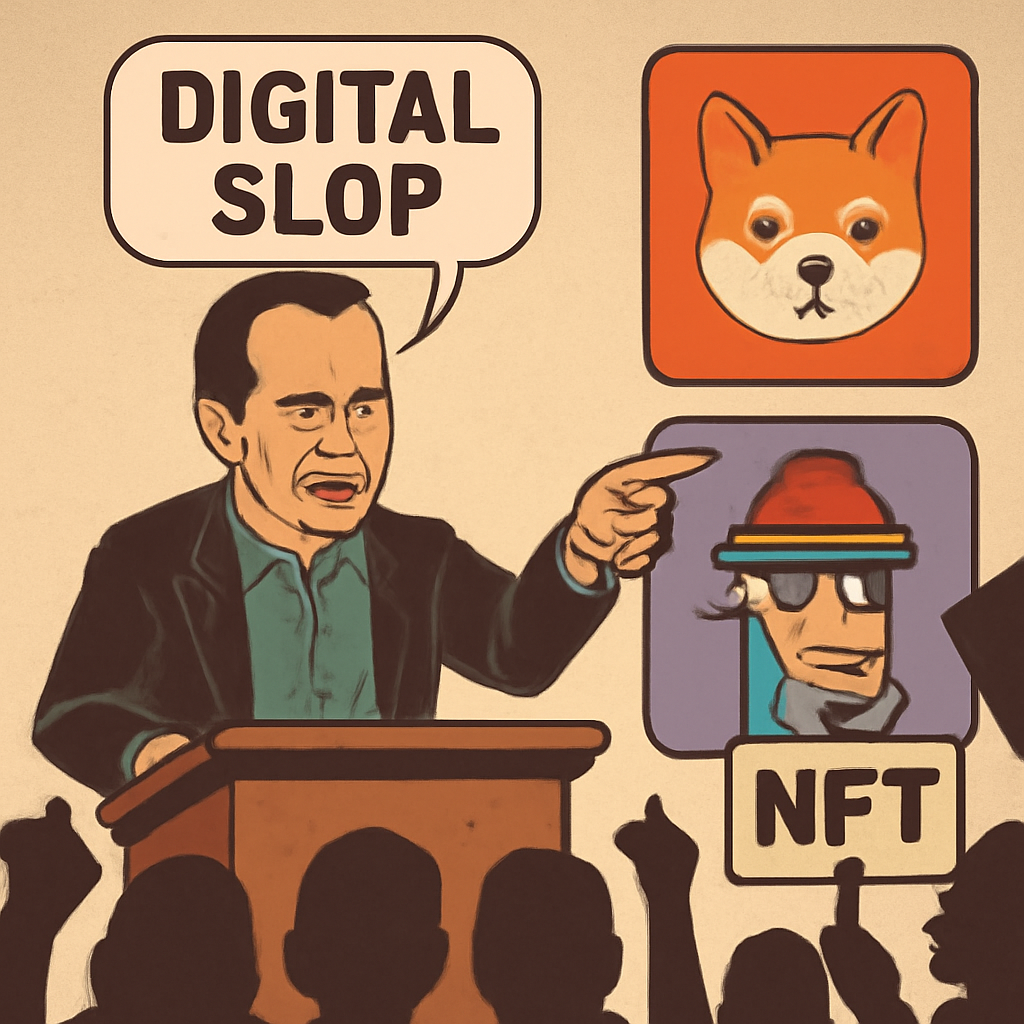Solana Co-Founders Spark Community Row with Memecoins and Digital Slop NFTs

by Admin |
Anatoly Yakovenko, the principal engineer behind the Solana blockchain, touched off a fierce dispute on 28 July after declaring on social network X, “Memecoins and NFTs are digital slop and have no intrinsic value—just like a mobile-game loot box.” The remark came in response to Base creator Jesse Pollak, who argued that NFTs possess cultural worth similar to museum art. Yakovenko, known for candid takes, acknowledged that speculative tokens drive a huge portion of Solana activity but insisted the sector’s obsession with quick-flip assets distracts from building durable products. His comment was immediately met with rebuttals from NFT artists, meme-token founders and even some Solana core developers, who noted that blockchain-infrastructure firm Syndica recently attributed 62 % of June dApp revenue—about $1 billion—to memecoin activity on Solana. Pump.fun, a Solana-based launchpad that enables one-click meme-token issuance, processed over 34,000 new token deployments in the last seven days, while copy-cat platform LetBonk has begun eroding market share by subsidising liquidity pools. Critics said Yakovenko’s language undercut teams that helped push SOL above $190 and generated first-half network revenue of $1.6 billion. Supporters countered that a founder’s blunt warning about speculation signals maturity and could spur the ecosystem to pursue more utility-driven applications. The flare-up dovetails with a broader industry conversation about “social-layer” solutions. One proposal would assign reputation scores to token creators and blacklist wallets tied to serial scams. Yakovenko dismissed that approach as “pitchfork politics,” arguing that any reputation metric adopted after launch merely chases symptoms and could morph into a de facto social-credit system. Debate spilled into governance forums where some builders floated higher listing fees, audited launch templates and mandatory lock-ups for meme projects. Others argued that free-market experimentation is essential to stress-test Solana’s high-throughput architecture. Despite the rhetoric, Solana network metrics remained unaffected: daily transactions stayed above 1.2 billion and average block times held at 400 milliseconds. The incident nonetheless highlights the uneasy balance between speculative demand that fuels growth and the long-term vision of a performant, developer-friendly smart-contract platform.
Comments (0)